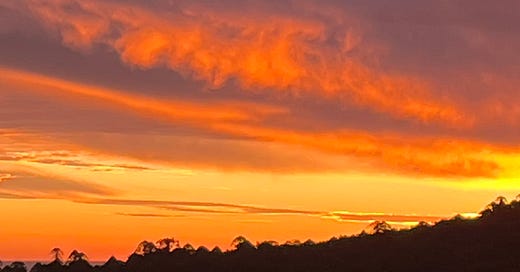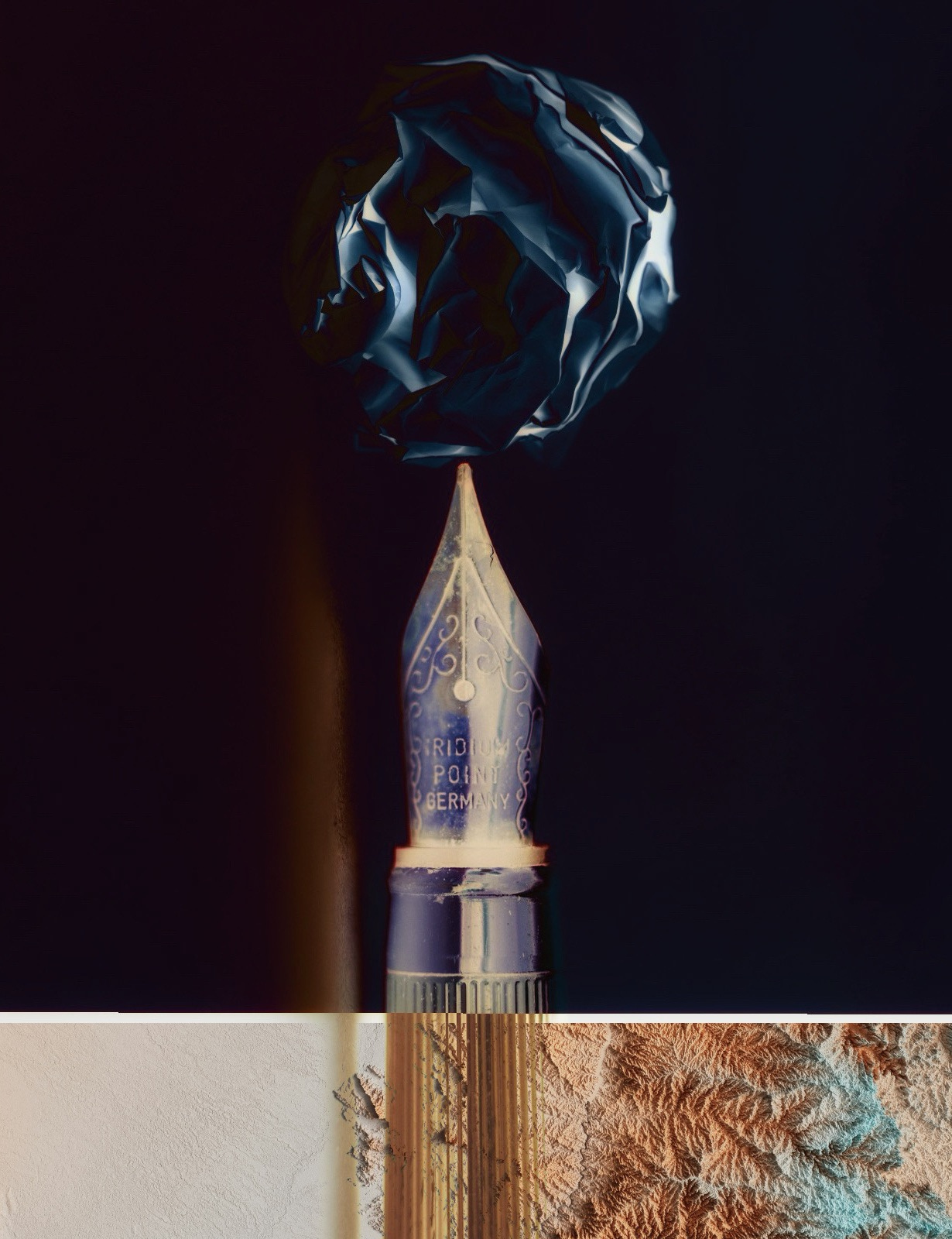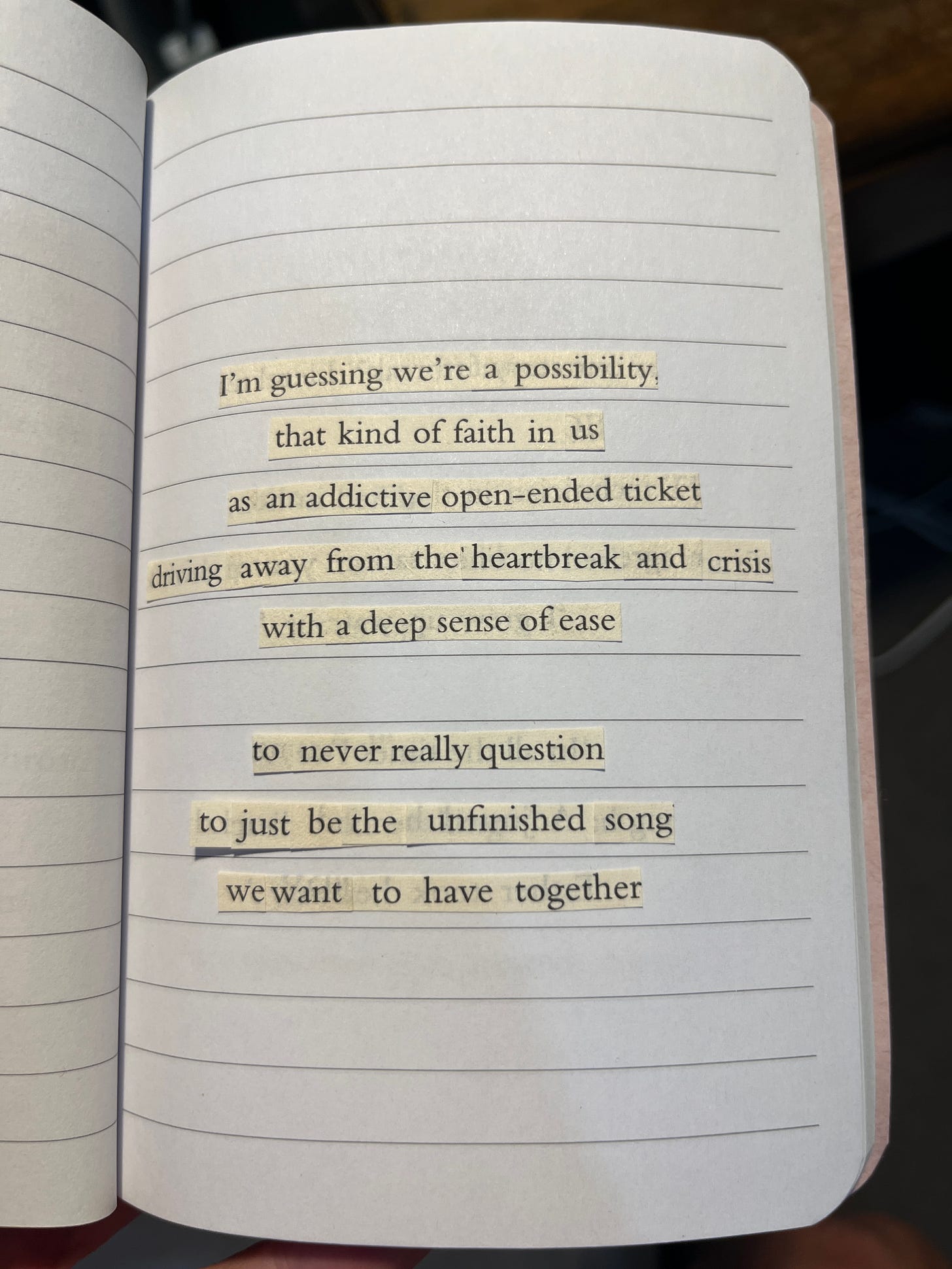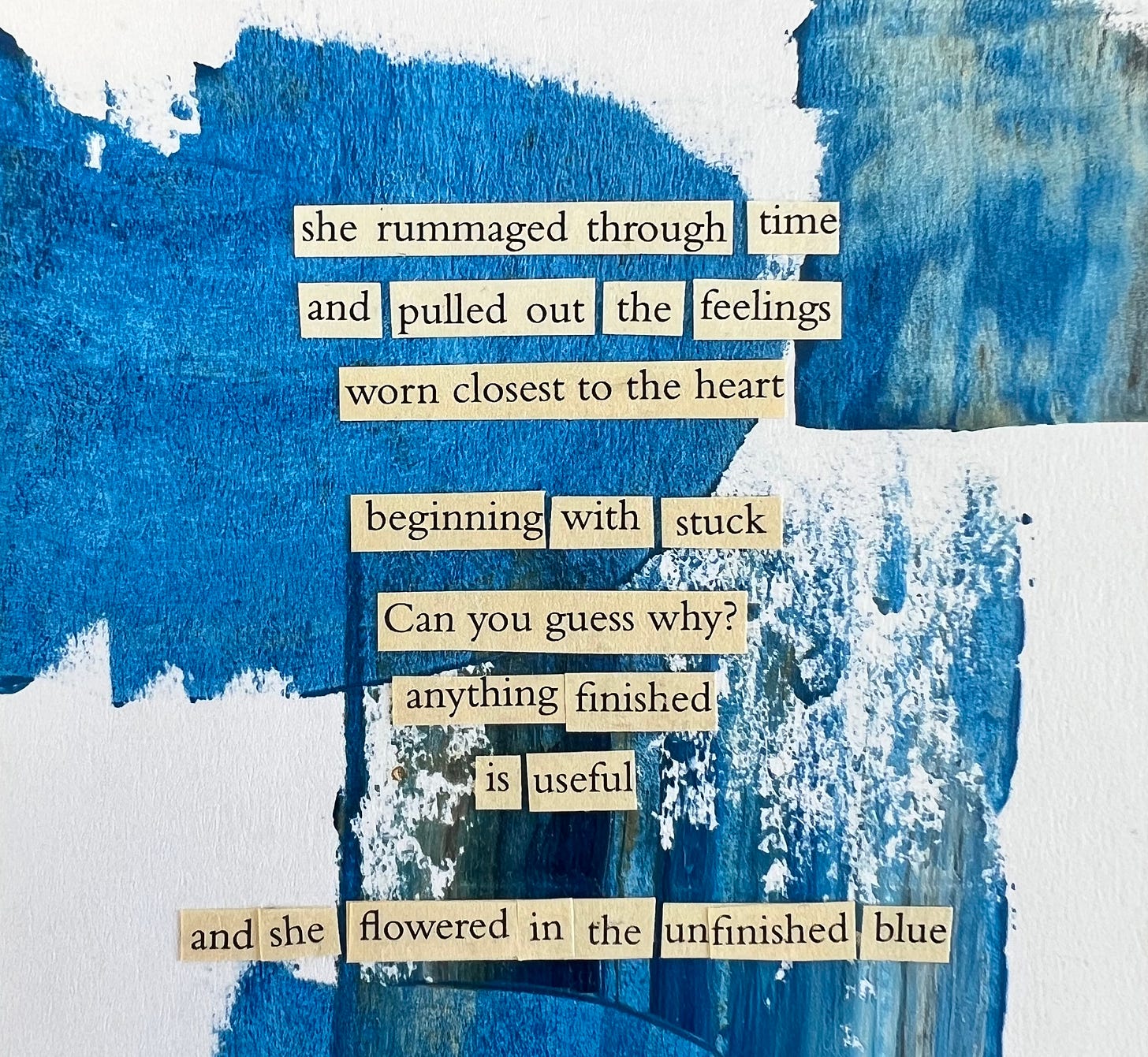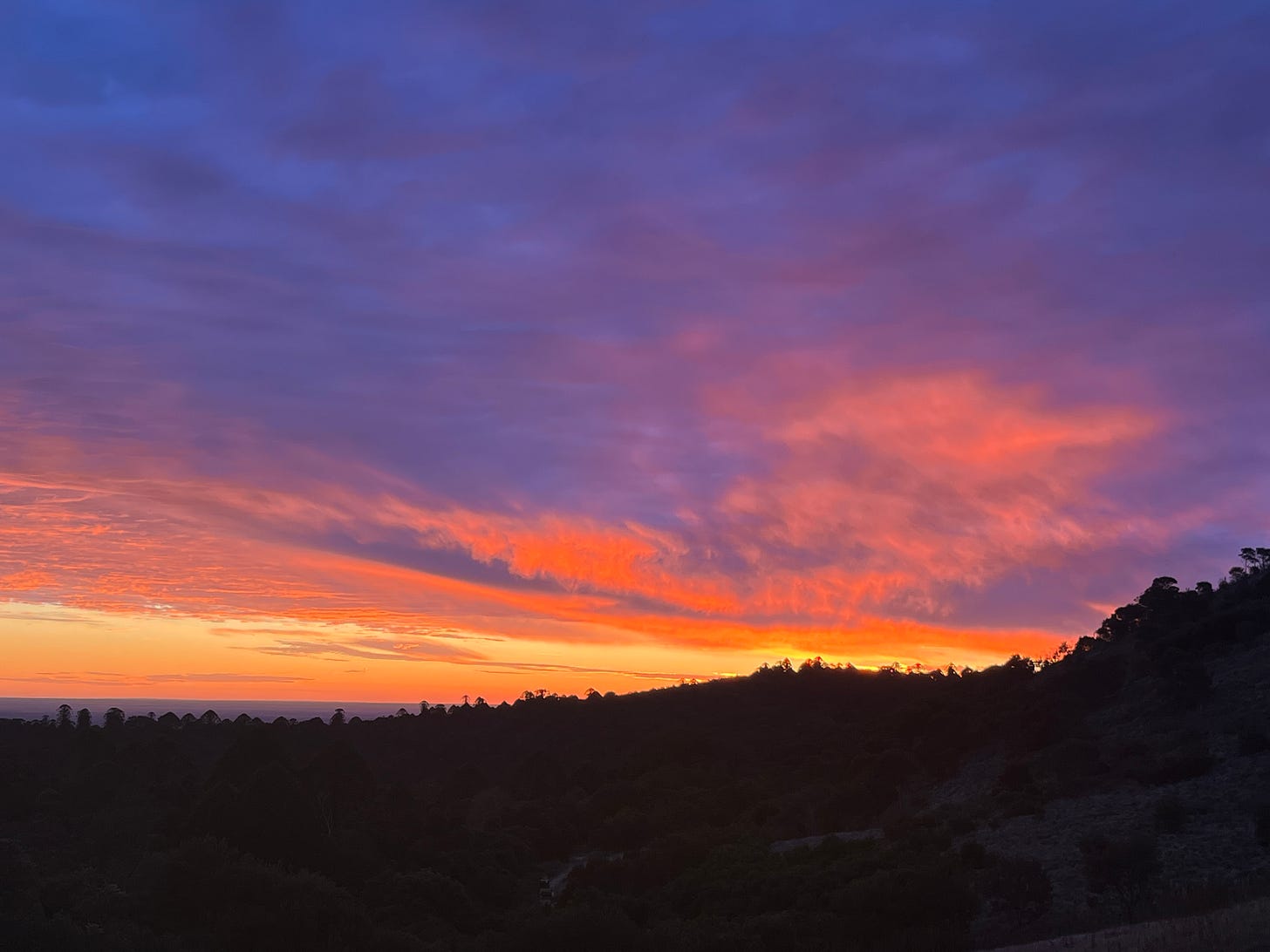Impermanence
Only that which is temporary endures.
— French Proverb
Permanent (adj.): from Latin permanentem, meaning “to remain” and permanere, meaning “to endure, hold out, continue, or stay to the end”.
im: prefix meaning, the opposite of.
Temporary (adj.): from Latin temporaries meaning “of seasonal character or lasting a short time”.
The King of Wands begins at the end; not merely a continuation of the Page’s daring and the Queen tenacity, but a culmination. They understand there is a season for everything and nothing lasts. Rather than cast a pall over life, this understanding unleashes an uncommon radiance that touches everything. Freed from both the past and future they are able to be fully present in the moment. Then they challenge assumptions of when and how things come to an end.
Everything will fall away—relationships, bodies, dreams, identities, circumstances we thought enduring.
The King is not trying to outrun the truth.; he’s not in denial of the end. This is not pessimism or nilhilsm, nor is it morbidity. He allows impermanence to be his first and last teacher. The temporary nature of life shapes, rather than warps him. Living in partnership with the temporary allows him to make the most of every moment. To be passionately, almost recklessly, present. Not distracted by the future or the past—but right here, right now, with you.
He builds his life around endings, knowing everything he creates, everything he touches, everything he loves, everything he considers important, will eventually turn to dust.
Him too.
Untethered from both the past and the future, he can live all the way in the moment. He knows his center and how to return to it.
What if we partner with the end? How do we be completely in the here and now?
What if we were to let go of the hooks of the past and the mirage of the future? Would it make it easier for find and return to our center? Without the past or future, what’s left? How does it feel to be truly free? Or are we ever free?
What if there is still a deep itch in our scars? What if, even fiercely centered in our lives, the isms and ologies still haunt us?
How do we fight fire with fire, when the collective delusion wants us to freak out about our mortality and do everything to ignore it? How do we live beyond the collective paranoia and trust the only promise we were given at birth: that our lives are book-ended by a first and last breath.
We only get one chance to meet the moment as it is.
The King knows every moment counts. He is all in. All of the time. And after exile the King gives zero fucks about people who are afraid to come near his kind of certainty and intensity.
Why half-arse things? And why be with people who want you to justify dancing on the safe edge when a riskier center is possible?
Let them compare everything to the past. Everything we need, we have right now. It is already with us. Let them twist toward the future in the hope of something better. We already have the best we can have in this moment.
What’s possible with this degree of lust for life?
Impermanence shares similarities with uncertainty—a certain amount of permanence is required to be fully in the flow of the temporary nature of life.
And maybe the permanent piece of temporary living is to be within a passing season. Ones that track with nature. Ones unique to our life circumstances. Short ones. Long ones. Some that are clearly and easily defined. Others ambiguous.
But each a container to hold, amplify and be present.
Perhaps the King of Wands, burning hot in the moment, is the doorway to Kairos Time—where a moment has the capacity to be so much more than just a moment. How a short, deep time, with someone or something, can be as meaningful as decades. Maybe more?
Could we be the unfinished song? Because what does it mean to finish? What if we could hit the peak and withdraw, content we have experienced the best? Would we trust that we have had the best and go? Or do we stay, trying to decide if it is nearly as good as it used to be … until we can’t remember any more how good it was.
The King subverts the exit point. He rejects enduring and society’s obsession with longevity. He burns down the idea that without the validation of months or years then something or someone has no worth. He challenges the default that temporary is meaningless, knowing it is easy to sleep walk through life and miss everything.
Wide awake, the King asks: is longevity a lie to keep us bored, numb and complacent? An empty pit of loneliness, discontent and longing perfect for capitalism to fill.
We’ve been taught to measure worth in months and milestones. The King asks: What if the deepest love of your life only lasted a week? Would it be less true?
If the King gives us permission to be all in, with the knowledge we might be devastated at the end and that’s okay, what might we choose? Maybe this is the closest we will ever get to time stopping. Maybe Kairos Time offers experiences Chronos (chronological, linear) Time can never match.
The King stands in the blaze of a winter sunset, as fire falls from the sky, overcome with the majesty and brilliance because they know it won’t last. If it did, the moment would—could not—command in the way it does; we’d be pulled in half a dozen different directions, taking us out of the moment. Instead, each heart beat brings the end closer making each flare of colour more thrilling. More captivating. Until the last of the fire falls and darkness tucks around us one final time.
Thanks to astrologer Kim Falconer who first interrogated the skewed perspective of time, worth and meaning in relationships on a group call a decade ago—my introduction to impermanence; Cath, who took the time to talk about her Year of Impermanence with me earlier this week; and Luke, who offered me a masterclass in it.
Innovation
There is only one thing stronger than all the armies in the world, and that is an idea whose time has come.
—Victor Hugo
Innovate (v.): from the Latin innovatus meaning “to renew, restore” and also “to change”
After choosing to be whimsical in the Page and experiencing madness in the Queen, the King decides it is time for innovation. The King is not forging a new path in an untouched (by human) landscape. They are immersed in the heat of what is already established and mulling over what new shape things can take.
Across the suit of fire, we have witnessed varying angles of illumination and have the experience of moving through many fires. This King holds the three essential pieces needed for innovation: awareness, wisdom and courage.
In an interview with Lavina Greenlaw, Colin Blakemore said, “Science is at its best when the data departs from your expectations but in consistent and meaningful ways.” This is the same for innovation as well. We need to see the world in a new way, but not so far fetched from reality that it has no meaningful purpose.
We all have blind spots in our vision.
Some areas of our retina have no light receptors but we don’t see gaps in our view. Instead the brain “fills in” the missing pieces to give us a continuous field of vision.
Could we extrapolate this and ask ourselves if we are seeing what is truly there when we look out at the world? Or are we instead filling in gaps of what we expect to be there? Maybe the role of the King of Wands is to interrogate our assumptions, to choose to see the gaps in our vision and innovate ways to fill those gaps with more than an illusion.
What ways are you already innovating in your day-to-day life? Who we are and how the world is don’t often match. What ways have you had to see things differently and come up with creative solutions in order to survive?
The King of Wands changes the question from ‘what if you had everything you need?’ to the more realistic statement ‘well this is all we have right now so let’s see what we can do with it.’
We are invited to step into our MacGyver mindset. Beginning before we have the appropriate tools and manuals.
No. 8 wire is a type of wire used in agricultural fencing in New Zealand. Remote farms often had rolls of this wire on hand, and when other non-fencing issues arose, they used this wire to solve all sorts of problems. The No. 8 wire is a cultural idea in New Zealand culture which is an ability to solve a problem using whatever is on hand. This is the wisdom of the King of Wands, to reimagine the use of something and find a way to reform what is established.
Courage is not just a choice. It’s strategic. It’s a survival strategy.
— Eric Holthaus
The King of Wands also brings courage to the table of innovation. There is a certain amount of bravery needed to break the rules of what is expected. To look at what is in front of you and decide to alter it in some way. There is also trust needed to take your own initiative, or that of your community, when it isn’t the usual expected practice.
More and more we are moving into a time where the official way of doing things isn’t the way we can care for and support the most number of people. It is hard to trust a government to be fair and just when profit is the main motivator behind policy. This card invites us to straddle the world of community innovation and structural change. Yes we need to change the systems that are in power, and we must not forget the power we have innovating together in our own communities.
The wands suit has been a big lesson in interdependence. Fire needs the coming together of fuel, oxygen and heat. We could struggle to do it alone or we could struggle together. Jen Lemen has a beautiful way of phrasing this: “if it’s easy do it now, if it’s hard let’s do it together.” The King of Wands stands slightly off centre, daring to see things in a new way, knowing when we can combine the skills of the community together we can expand our possibilities for creative change.
Poetry
her heart glitches / phasing in and out of stories / converting light into / pseudonyms
— Jodi
The spiritual lands of / questions / reconstruct longings, and / their travails / as ritual poetry
— Christina
Anchoring Practice
Courting the Sunset (Jodi)
Watching the sunset is a perfect way to be present with impermanence.
There are so many ways you can play with entry and exit points.
Here are three starting options:
arrive early and leave late
arrive late and leave early
exit at the height of the sunset’s brilliance
How does it feel to leave before the sunset is finished? What does it tell you about your relationship with finishgin?
How does your experience change if you share it with someone?
Innovate your art (Christina)
This week we are going to practice innovation in our creative space. Take something creative you have already made and find a way to renew it.
Some ideas:
Take a finished painting of yours and add more to it. Or paint over half of it and see what could be added that revitalises this old work.
Unravel some of a knitting or crochet project to use a different colour or stitch.
Take a few lines from a poem you have written and reimagine how it could be different .
Gather all the leftovers from your fridge and pretend you’re on a masterchef show with a mystery box. What kind of meal can you create with what you have?
Randomly pull out three pages from different magazines and only use what is on those pages to make a collage.
Take the three essential pieces of innovation (awareness, wisdom and ferocity) into your creative practice and see what emerges.
Journal Prompts
What is your No.8 wire? Your go to beginning (and maybe end) point to pivot, innovate or reimagine? When did you use it for the first time? When was the last time you used it? Was this a form of inheritance? Who might you share your No. 8 with?
What stands in the way of you taking initiative? In your life in general? Or specifically: emotionally, creatively, magickally or in the activism you are always trying to get around to getting involved in? Is it fear or something else that short-circuits your desire to take action?
When was the last time you were courageous? What changed because you harnessed your courage? Who (or what) do you draw courage from?
Have you ever specifically done something for a short time? Especially something that usually is a longer term commitment? What does a short-term commitment demand that a long-term commitment doesn’t? In a relationship? In creativity? In a job? Or something else?
How would you define lust for life? Where do you fall on the continuum of lust for life? Are you in the same place you were last year? Last week? What amplifies it? What drains in? What gives you permission to be all the way in?


